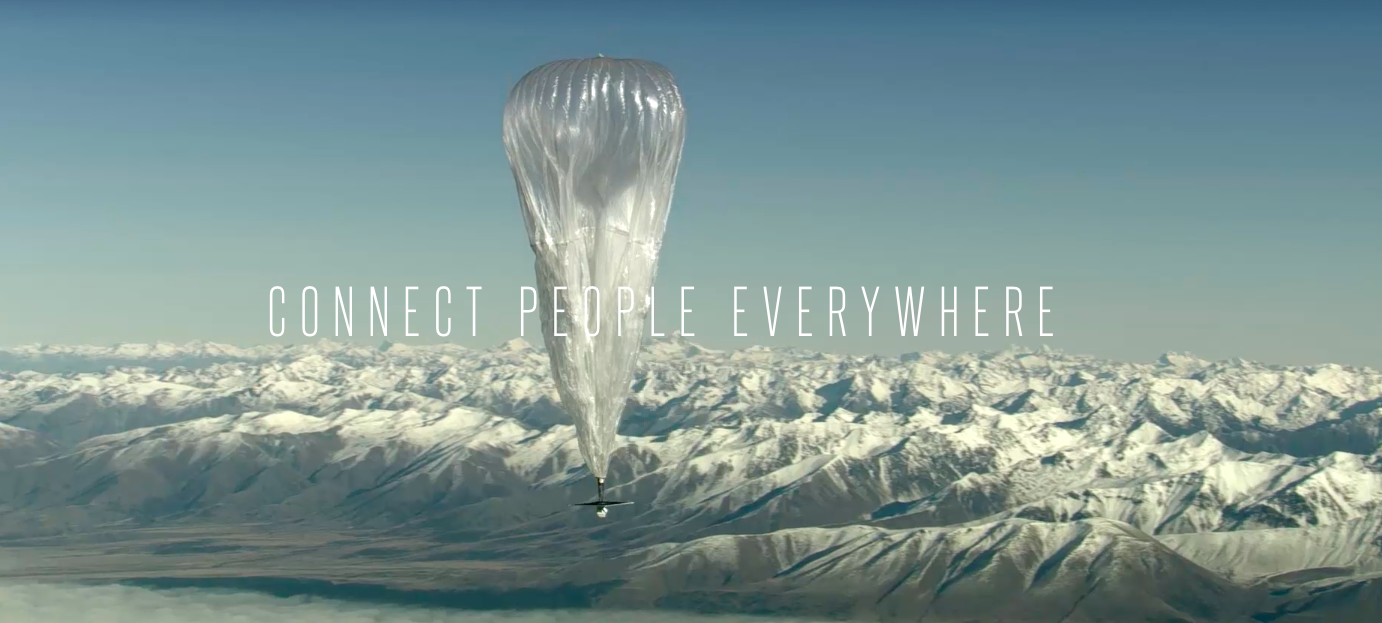For many individuals in remote locations, reliable access to internet is a luxury which is often prohibitively expensive or simply not available at all. Due to this, many in rural farming communities do not have the connectivity or ability to better sell their wares, communicate with customers and access vital information.
Several years ago Alphabet Inc. – the parent company of search engine behemoth Google – launched Project Loon with the goal of providing isolated rural communities with internet access via internet dispensing helium balloons. This week, Alphabet announced that Project Loon has graduated into its own company, simply titled Loon, and that it has already partnered with a Kenyan telecom company to provide internet to isolated communities.
Cell Towers at the Edge of Space
Loon plans to work with Kenyan Telkom to deliver a fleet of tennis-court-sized helium balloons to be used across Kenya. Each balloon is essentially a cellular tower floating at the edge of space and carries an antenna from which internet can be dispensed over a 5,000 km square area. By traveling in the stratosphere at the height of 12 km, the balloons can avoid potentially dangerous encounters with air traffic, storms and wildlife.
The balloons are made of polyethylene and powered by solar panels. They are designed to ride on the winds for months at the time, with the software aboard making predictions of wind speed and direction to better co-ordinate their navigation. The balloons are launched by Loon’s custom-built mobile ‘Autolaunchers’, which can send a balloon up into the sky every thirty minutes if required. With this technology, Loon hopes to quickly set-up a network and maintain it in the event a balloon goes down.
Loon’s solution to providing internet access is particularly attractive to Kenya, a country that has long struggled with the issue of providing internet over large areas. Installing traditional infrastructure in Kenya’s hinterland is fraught with difficulty considering the distances that need to be covered between population centers and rural areas. There are alternatives to Loon, however, including WE! Hub, a project to create internet, electricity and water hubs in rural Kenya.
Despite the impressive potential, not everyone is enthusiastic about introducing a global conglomerate into rural Kenya. In particular, Loon’s partnership with Telkom effectively creates a monopoly on providing internet coverage over a large swath of Kenya, placing rural communities at the mercy of Alphabet and Kenya Telkom. Ken Banks, the head of social impact at Yoti and an expert of African connectivity told the BBC:
“Once these networks are in place, and dependency has reached a critical level, users are at the mercy of changes in business strategy, pricing, terms and conditions and so on.
This would perhaps be less of a problem if there’s more than one provider – you can simply switch network – but if Loon and Telkom have monopolies in these areas, that could be a ticking time bomb.”
This technology will also only be effective if it provides internet access at a reasonable cost. Currently, 1GB of internet data across Africa costs, on average, nine times more than the UN Broadband Commission recommendation of 2 per cent of gross monthly income. Without meaningful competition, Alphabet could effectively charge what they please, or impose restrictive policies and contracts.
Indeed, the exact details of the deal between Loon and Telkom have also not been disclosed.






